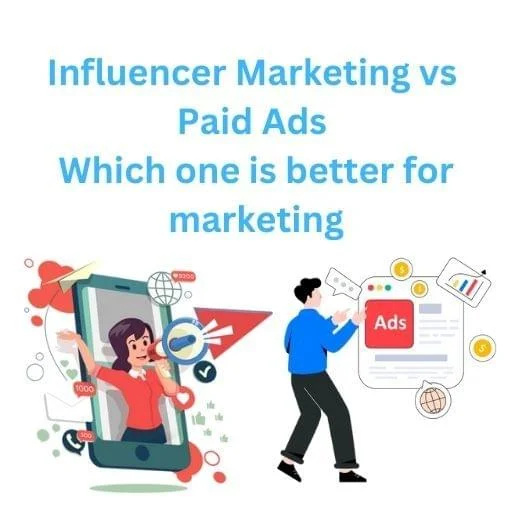Influencer Marketing Vs Paid Ads: Why Ads Better in Marketind
Introduction To Influencer Marketing
In the landscape of modern marketing, influencer marketing has become widely accessible. Previously, influencer marketing was often aligned with the budgeting of large enterprises. However, the popularity of social media influencers has allowed businesses to capitalize on their online presence.
In addition to influencer marketing, paid ads have emerged as powerful forces for brand promotion and customer engagement. While both have their merits, this article aims to discuss why paid ads often reign supreme.
In this guide of the comparison between influencer marketing and paid ads, we will delve into the intricacies of each strategy. We will uncover the advantages of influencer marketing, how influencers have transformed digital marketing, and the role of influencer marketing agencies.
This guide will also analyze the trends in paid ads marketing, explain how paid ads function, and study the auspicious advantages they offer.
Let’s discover why paid ads are often more yieldful for businesses striving to reach their marketing goals.
What Is Influencer Marketing?
Influencer marketing is a strategy that leverages the reach and appeal of social media influencers to promote products and services. Social media influencers with a considerable online active following partner with brands to create promotional content. This content subtly introduces and endorses their product or service in an authentic and relatable way to their audience. This means influencers act as brand advocates while pivoting on the power of trust and social proof. These factors play a significant role in the decision-making of consumers. The customer believes that the product or service recommendation came from a genuine source.
Advantages Of Influencer Marketing
Influencer marketing offers several key advantages:
⦁ Authenticity
Influencers often have a dedicated and loyal following. When they endorse a product or service, it comes across as genuine and trustworthy. Thus, resonating with consumers on a more personal level.
⦁ Audience Segmentation
Influencers often cater to specific niches or demographics. This allows brands to reach their target audiences more effectively.
⦁ Content Creation
Influencers are skilled content creators. Their engaging endorsements help boost a brand’s online presence.
⦁ Engagement
Influencers interact with their followers regularly, making it easier for brands to engage with their target audience
How Influencers Have Transformed Modern Marketing
Influencers have significantly inspired and transformed modern marketing by being catalysts for change in the following ways:
⦁ User-Generated Content
They encourage and inspire user-generated content that provides authentic testimonials and brand-related content.
⦁ Social Proof
The ‘influencer effect’ showcases the impact of social proof. People are more likely to purchase a product if they see others liking it.
⦁ Niche Marketing
Influencers have made it possible for businesses to tap into micro-niches, reaching an audience that might be challenging to access otherwise.
⦁ Storytelling
They emphasize storytelling which makes marketing messages more engaging and relatable.
What Is an Influencer Marketing Agency
Influencer agencies act as intermediaries between brands and influencers. They facilitate collaborations and manage campaigns. Agencies aid brands in identifying the right influencers for their niche and campaign objectives. Moreover, influencer marketing agencies play a pivotal role in negotiating terms, setting expectations, and ensuring compliance with advertising standards and regulations.

